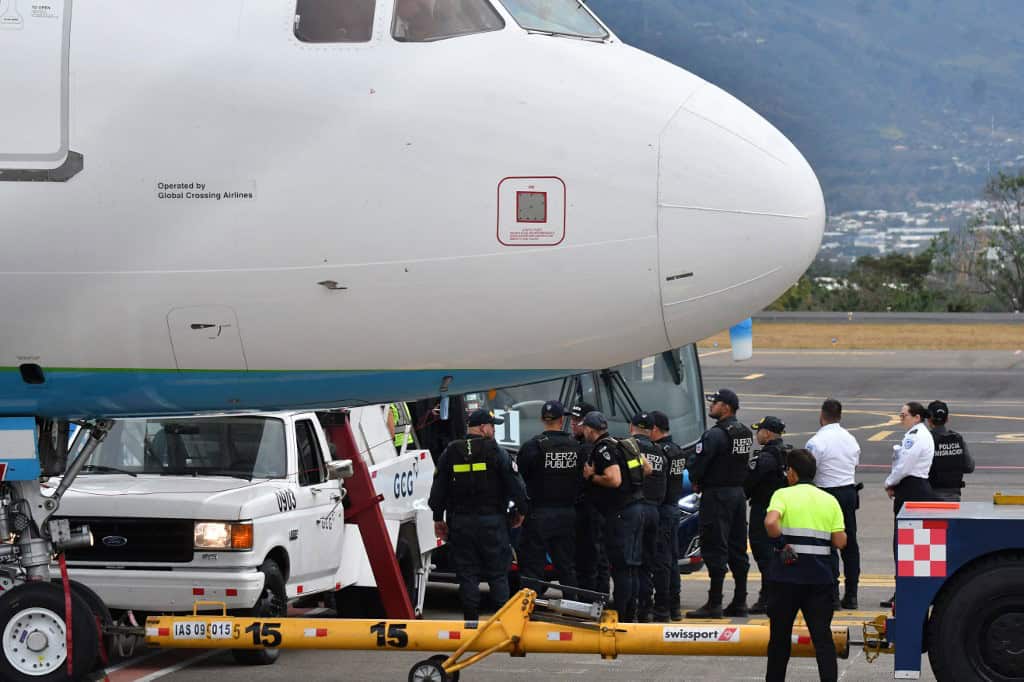The government of U.S. President Donald Trump “unjustly” expelled 200 migrants to Costa Rica—including children—after holding them “in abusive detention conditions,” the NGO Human Rights Watch (HRW) charged on Thursday. Since returning to the White House in January, Trump has made the fight against irregular migration a top priority and has vowed to deport a record number of migrants, requesting help from allied countries to do so.
In February, Costa Rica accepted 200 asylum seekers and migrants removed from the United States, among them 81 children aged one to 17. They come from Afghanistan, Angola, Armenia, Azerbaijan, China, the Democratic Republic of the Congo, Georgia, India, Iran, Kazakhstan, Nepal, the Republic of the Congo (Congo-Brazzaville), Russia, Turkey, Uzbekistan, Vietnam and Yemen.
“They say they asked for asylum but were not allowed to file the application,” said Michael Garcia Bochenek, lead author of an HRW report based on interviews with 36 people between March 1 and April 30. “We identified only two cases where part of the asylum process took place, but it was an extremely brief interview with an immediate denial,” he added.
U.S. authorities held the migrants “in abusive detention conditions, sometimes for weeks,” HRW asserts. Garcia Bochenek said he spoke with a woman who was separated from her 12-year-old son, who has vision problems: “He had trouble with his glasses and she was willing to buy a new pair, but officials would not allow it, so the child went without proper vision for weeks,” the HRW legal adviser recounted.
In a statement, HRW urged Costa Rica and the United States to “immediately allow these families to seek asylum in a country where they feel safe.” Costa Rican authorities say they have served as a “bridge” between the United States and the migrants’ countries of origin, but the NGO disputes that claim. Costa Rica “knew or should have known” the migrants did not want to return home, Garcia Bochenek argued, lamenting that a country long seen as a model for welcoming refugees has become “an accomplice” to such expulsions.
More than two months after their transfer to Costa Rica, half of the 200 migrants have returned to their countries of origin. For the remainder, “Costa Rican migration officials began returning passports on April 23 and informed them they could obtain a special humanitarian permit granting 90 days to apply for asylum in Costa Rica or leave the country,” HRW reports.
The NGO calls on the Costa Rican government to grant the migrants work authorization, housing assistance and language classes, and to “refuse future transfers of third-country nationals expelled from the United States.”






